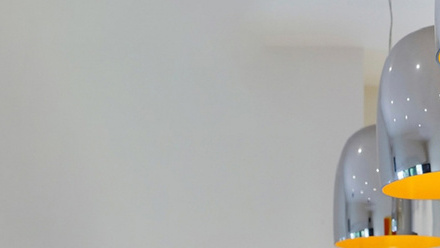The LIA Certificate Course
Using the experience of delivering a wide variety of courses in lighting application and design for the lighting industry, the Lighting Industry Academy has developed the Certificate Course to provide a solid foundation of knowledge required for a career in lighting.
The fully revised course is designed to build an understanding of the fundamentals of light, lighting technology and lighting design.
The Certificate course provides an excellent grounding in lighting for a wide range of audiences has proven to be the catalyst for many long and very successful careers in the lighting industry.
The course is offered in a modular format consisting of three modules, where the individual modules can be taken together over five consecutive days or separately to suit an individual’s requirements and experience.
The learners are also required to work on a lighting project of their choice to apply their learning to a lighting scenario.
The Certificate awarded on completion of the course is recognised by the SLL (the Society of Light and Lighting) as partial fulfilment of the requirements for the award of the SLL Lighting Diploma.
Key Information
| Course Location: | Online via Teams |
| Education Institution: | The Lighting Industry Academy |
| Duration: | 4 days teaching + 0.5 day project briefing/workshop |
| Delivery: | Teacher-led classroom learning |
| Assessment: | 3 knowledge tests + 1 project report |
| Intakes: | Once a month at specified dates |
| Level: | Certificate |
|
Member cost: Non Member cost: |
£1,040 + VAT £1,300+ VAT |
The Certificate course modules are offered as stand-alone courses as well for those who only want to study a specific topic covered in the course.
Who Is The Certificate Course For
How Is The Certificate Course Delivered
The course is composed of 4 days of tutor-led training comprising of four and a half days of modules and a half-day project briefing/workshop.
The modules are delivered in a classroom setting via presentations and course notes handouts relating to each session and the Society of Light & Lighting (SLL) Handbook.
The course modules days can either be undertaken as a week-long block or as separate modules with gaps in-between; however, they must be taken sequentially.
The project briefing/workshop is delivered on the morning session of the fifth day.
Certificate Course Learning Objectives
Lighting Fundamentals
To be taken as the first module of the Certificate course, Lighting Fundamentals is taught over two consecutive days and is designed to prepare the learners for a career in lighting, or for gaining a grounding in lighting for those working in related professions.
It looks at how light is produced and measured, how light is received and processed by the eye and the emerging considerations and trends which are shaping the sector.
The Lighting Fundamentals module constitutes 5% of the total marks of the Certificate course.
Lighting Technology
The second module, taken on the third day of the certificate, is designed to develop awareness of the lighting technology available. It looks at the range of light sources available, luminaire construction, optics and lighting controls.
The Lighting Technology module constitutes 5% of the total marks of the Certificate course.
Lighting Design
The third module of the course is covered in one day and is designed to develop an awareness of lighting design considerations.
The course looks at the approach and techniques used by lighting designers for creating successful designs. It introduces learners to the impact of lamp maintenance and replacement on design, as well as teaching considerations for retrofitting of lighting systems, emergency lighting and use of colour in lighting schemes.
The Lighting Design module constitutes 20% of the total marks of the Certificate course.
Lighting Project
The final part of the course is a mandatory half-day briefing session scheduled on the morning of the fifth day, which introduces the project and outlines the requirements for completion, including the type of information required and how to present it.
The project is designed to give the students an opportunity to convert the theory of the course into practice and is useful for students with little experience of the design of a lighting installation to work on the practical aspects of the course.
Following the project briefing, students are given up to 12 weeks to complete a lighting project designed to test the ability to apply learnings from the course to a lighting scenario.
The submitted work is required to include a technical report showing the design method, assumptions made, calculation method and all the data used for the design (photometric data in particular).
The project constitutes 70% of the total mark of the Certificate course.
Certificate Course Attendance
5 days consisting of 3 modules and a project briefing. Each module can be attended consecutively or separately, however, they must be attended in the sequence given below:
| 1 | Lighting Fundamentals | 2 days |
| 2 | Lighting Technology | 1 day |
| 3 | Lighting Design | 1 day |
| 4 | Lighting Project briefing | 0.5 day |
Timing: 9:30 am – 4:30 pm.
Certificate Course Assessment
Knowledge Tests
The learners are assessed at the end of each module through a knowledge test paper consisting of multiple questions.
The questions cover the principles taught during the module and are designed to test the student’s understanding of the underpinning principles covered in the module.
The deadline for submission of the knowledge test will be informed by the course tutor. (It is advised to submit it as soon as possible while the course material is fresh in the mind)
Project
Students must submit a professional report consisting of the design methods, equipment, luminaires, calculations and all the data used for the design project (photometric data in particular).
The lighting project is designed to test the student’s ability to apply the learning on the course to a lighting scenario.
The project report must be submitted within 12 weeks of receiving the brief or by the deadline date agreed with the course tutor.
Each component of the assessment contributes to the overall achievement of the certificate in the following way:
| Module | Contribution to the total marks | Pass threshold |
|---|---|---|
| Lighting Fundamentals | 5% | Requires a minimum of 60% of the marks available on each module to pass |
| Lighting Technology | 5% | Requires a minimum of 60% of the marks available on each module to pass |
| Lighting Design | 20% | Requires a minimum of 60% of the marks available on each module to pass |
| Lighting Project | 70% | Requires a minimum of 50% of the marks available for the project to pass |
The Certificate is awarded on completion of all three modules of the course together with the project, within six months of starting the course.
Certificate Course Support
The materials provided during the course are designed to provide support and give a reference point for completion of the knowledge tests and project work.
Support is also available through the course tutor.
Please direct all support requests via the dedicated course support email [email protected]. You will receive a response from either your course tutor or another suitable member of the Academy training team.
Certificate Course Progression
Upon completion of the Certificate course, take your education in lighting to an advanced level by choosing from the Advanced Certificate courses in Interior and Exterior Lighting.
Learners may also want to improve their knowledge of a specific topic of lighting by enrolling on to the courses in one of the following subject areas:
- Standards and Legislation
- Lighting Design Software (DIALux and Relux)
- Emergency Lighting (endorsed by ICEL)
Meet The Trainer

Paul Stearman
Paul has worked in the lighting industry for most of his life. A qualified Lighting Designer and Lighting Consultant specialising in Low Energy and LED Lighting, he has worked with major clients such as Whitbread, Mitchell & Butlers, JCB and a number of large schools and colleges. Paul is passionate about lighting and helping clients reduce their energy bills though the correct choice of LED Lighting and Lighting Controls.
Paul is a member is the Society of Light and Lighting (MSLL) and has worked in Senior Management for some of the UK’s largest lighting companies. He is also a tutor for the Lighting Industry Association where he runs courses on Energy Saving with LED Lighting and Understanding the use of LED Lighting.
Paul has a passion for Photography and is a qualified Profession Photographer (LBIPP) specialising in Weddings.



